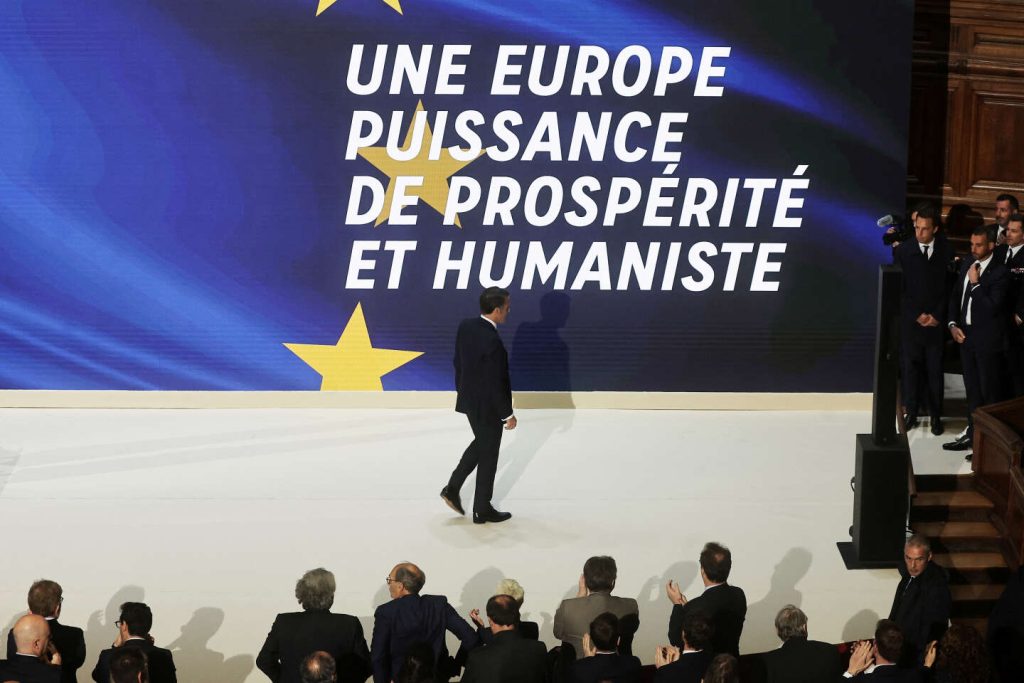In his speech on the European Union (EU) on April 25, Emmanuel Macron outlined the main points of a new European project aimed at making Europe a true power in military, scientific research, and trade policies, as well as increasing communal control over migration flows. Macron’s project focused on a sovereign and geostrategic Europe, capable of defending itself and becoming an international player that can compete with the United States or China. However, this shift of power to the European level leaves social issues at the national level.
The question arises of whether French voters share Macron’s vision for Europe. Data from a survey conducted by Ipsos in partnership with various institutes show that French voters prioritize issues such as the migrant crisis, climate change, and the future of agriculture over common defense or strengthening the EU against global powers like China or the US. The military focus of Macron’s project is not a top priority for French voters, highlighting a difference in priorities between political figures and citizens.
The situation is not simply a choice between a powerful Europe and narrow nationalism. The idea of European sovereignty, which is weakly supported (54%), faces the preference for national sovereignty (71%). European sovereignty struggles to address the issue of social cohesion, which is crucial in France. Voters in France are more likely to vote based on issues like purchasing power, immigration, and healthcare, which are important to the working class and often favor right-wing parties like the Rassemblement National.
What French voters are looking for is a rearticulation between the European project and national interests. A minority of voters (24%) want the EU to have more decision-making power in common policies, with a majority preferring a focus on member states (35%) or even specific agreements (8%). For example, when it comes to migration, only 38% of French respondents want it to be addressed by EU policies, while 48% prefer state-level solutions. The temptation of a “Frexit” is low (14%) and mostly appeals to supporters of RN or Reconquête lists.
In conclusion, Macron’s vision for Europe as a strong and sovereign entity is not fully aligned with the priorities of French voters. There is a disconnect between the focus on military power and the social issues that are crucial for many voters. While some support greater European integration, the majority still prioritize national sovereignty and are looking for a balance between European and national interests. The upcoming elections will be a test of whether Macron’s European vision resonates with the French electorate.


